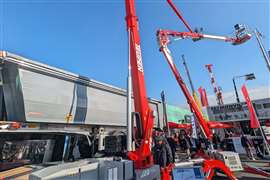UK Bribery Act “ineffective” for construction
07 October 2013
Despite the introduction of a tough new Bribery Act in the UK in 2010, corruption is still common in the country’s construction industry, according to respondents to a survey by the Chartered Institute of Building (CIOB).
The results showed that 28% of the 701 construction professionals surveyed felt that corruption was common within the UK construction industry.
Respondents suggested that cultural practices and economic conditions were the main reasons for the prevalence of corruption, and that squeezed tender margins and reduced workloads have pressurised some professions into corrupt practices as a means to survive.
More than one in three (35%) of those surveyed said they had been offered a bribe or incentive on at least one occasion. And over a third (38%) reported coming across cartel activity in the UK construction industry on at least one occasion. Of those, 29% claimed to have witnessed it over the last 12 months.
Nearly half of the respondents were unaware whether their company had a whistle-blowing policy, and only 7% said that they had used it, reporting varying degrees of success.
In addition, more than half of the respondents (54%) were unable to estimate the annual cost of fraud or corruption to their organisation, this is despite 45% of the sample describing themselves of senior management or director level.
Nearly 10% also indicated annual losses totaling £1 million (€1.2 million) or more as a result of fraud and corruption. Of those surveyed, 42% worked in large companies with 500 employees or more.
Furthermore, cover pricing – the submission of artificially high tenders to favour competitors – was seen as not be corrupt by 20% of respondents.
Other practices such as billing for unperformed work, collusion and cartel activity linked to the construction industry were recognised as corrupt.
Of those surveyed, 43% suggest that all the stages of the construction process were susceptible to corruption, while 35% specified that the pre-qualification and tendering phase was the most at risk.
"Little progress"
CIOB deputy chief executive, Michael Brown, said, “Our findings reveal that little progress has been made since our first piece of research into corruption in 2006. What we have found is that cultural practices and the consequences of the recession have placed a greater strain on companies to sometimes engage in adverse practices as a survival mechanism.”
And co-ordinator of the UK Anti-Corruption Forum, Graham Hand, said the findings from the survey were unacceptbale.
“This valuable report shows that despite the introduction of a tough new Bribery Act in 2010, corruption is still common in the construction business in this country.
“Law enforcement agencies need to work with professional and business organisations to educate companies about their responsibilities, and they must act against companies that break the law.”






